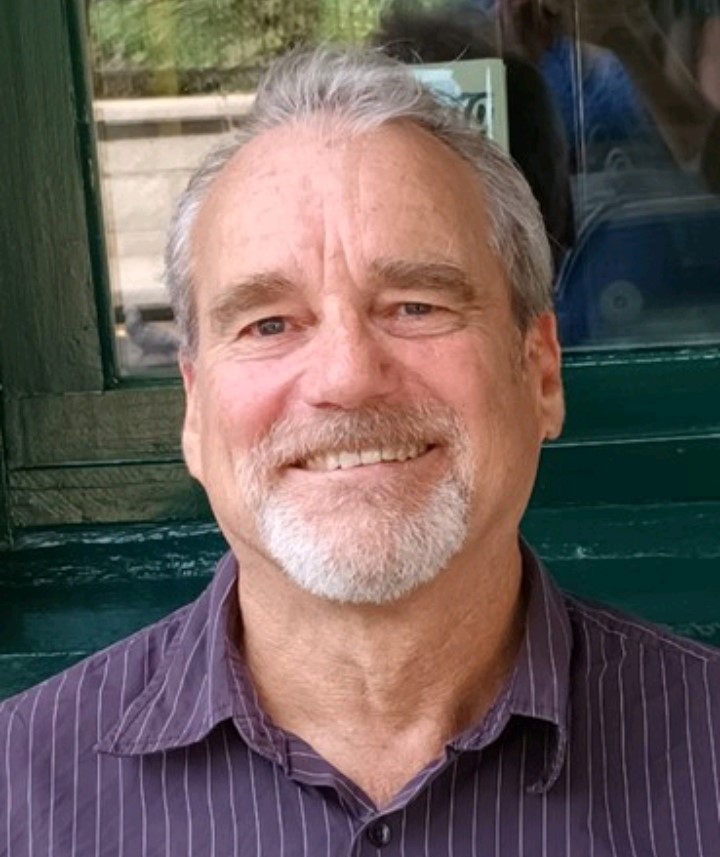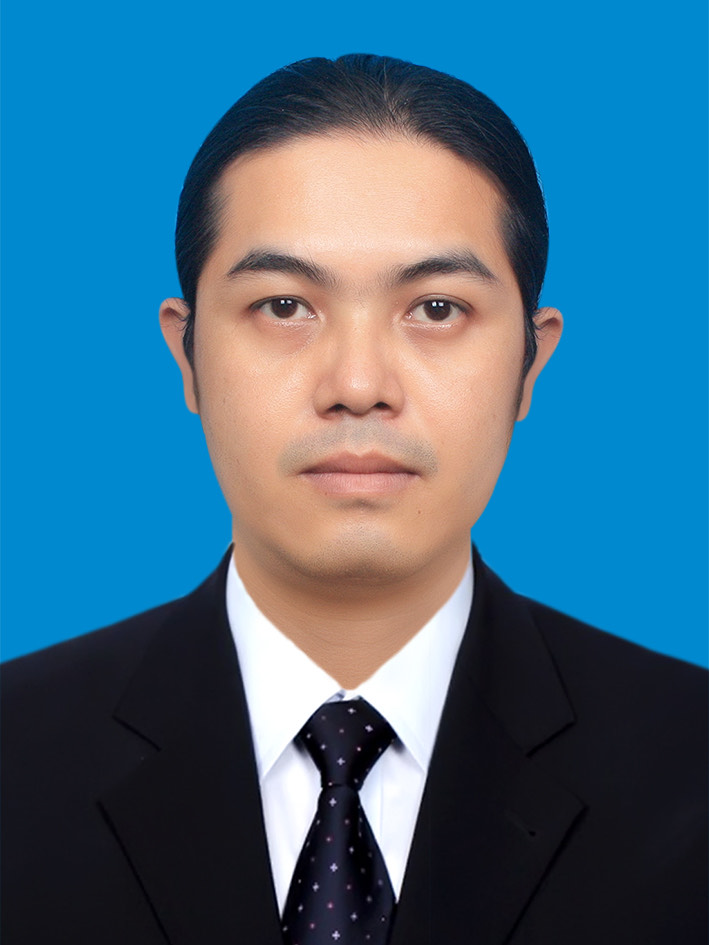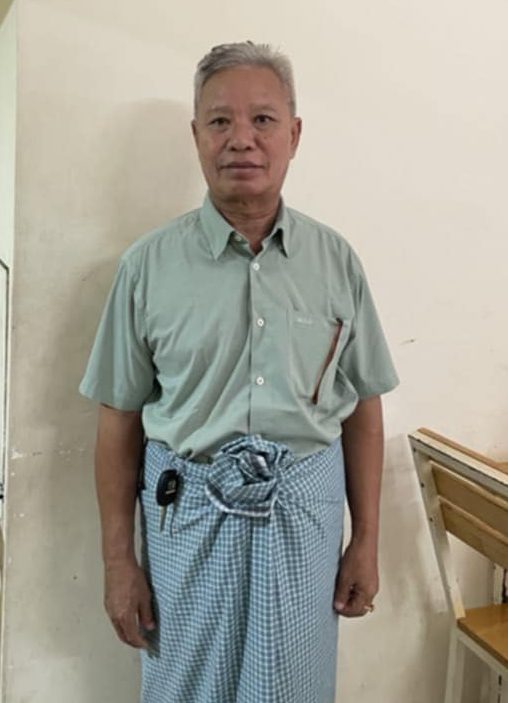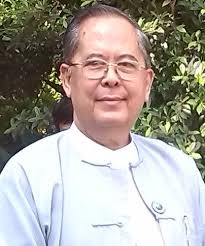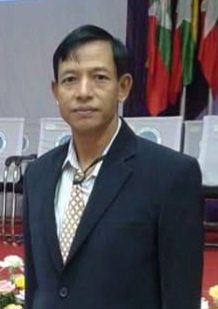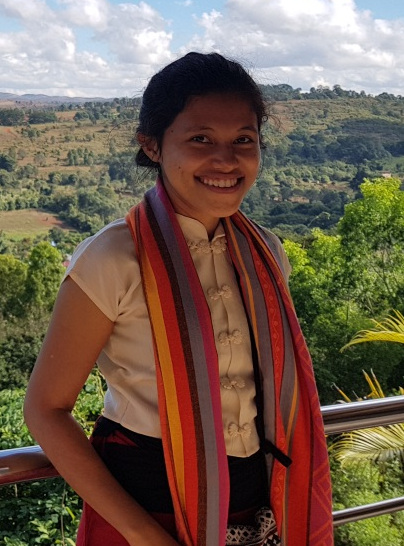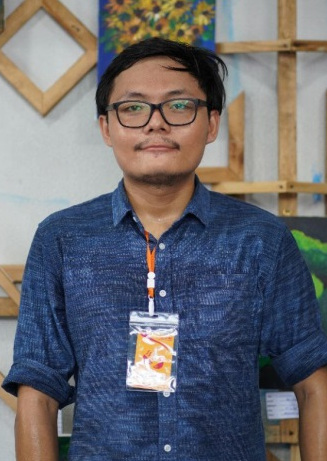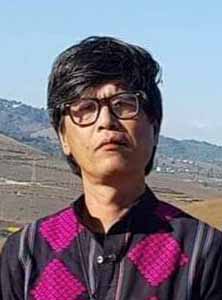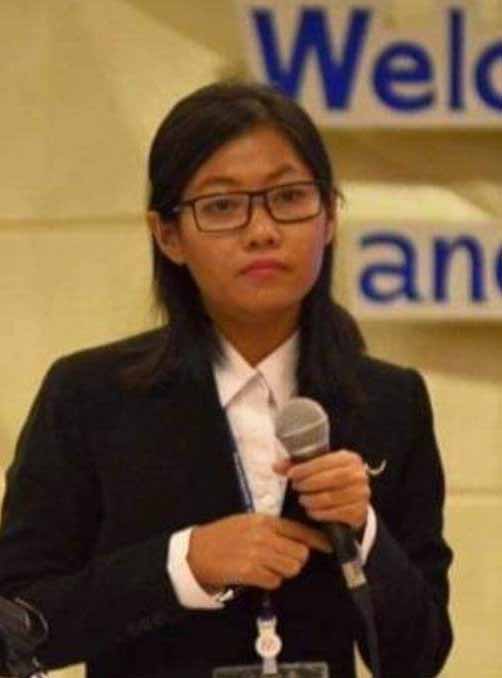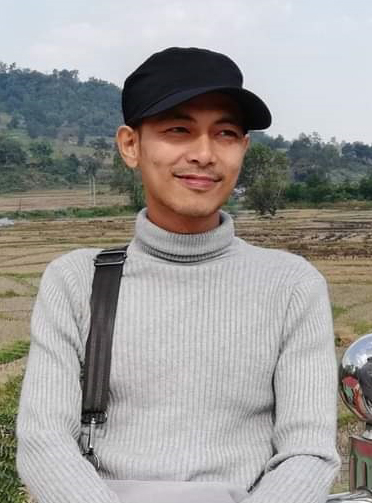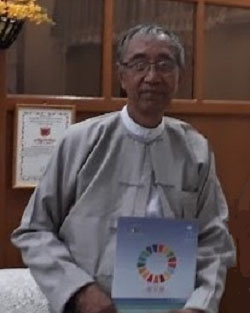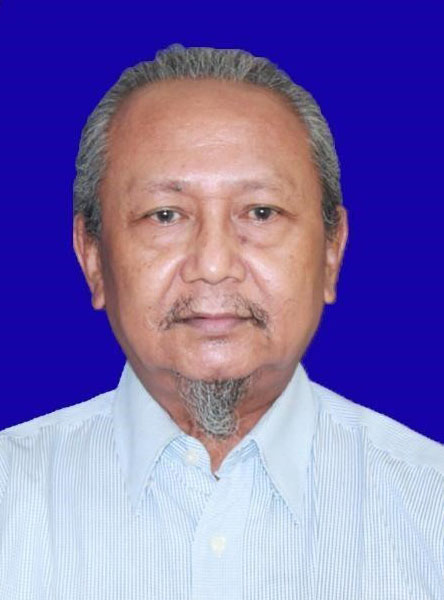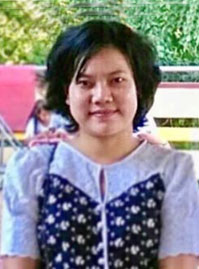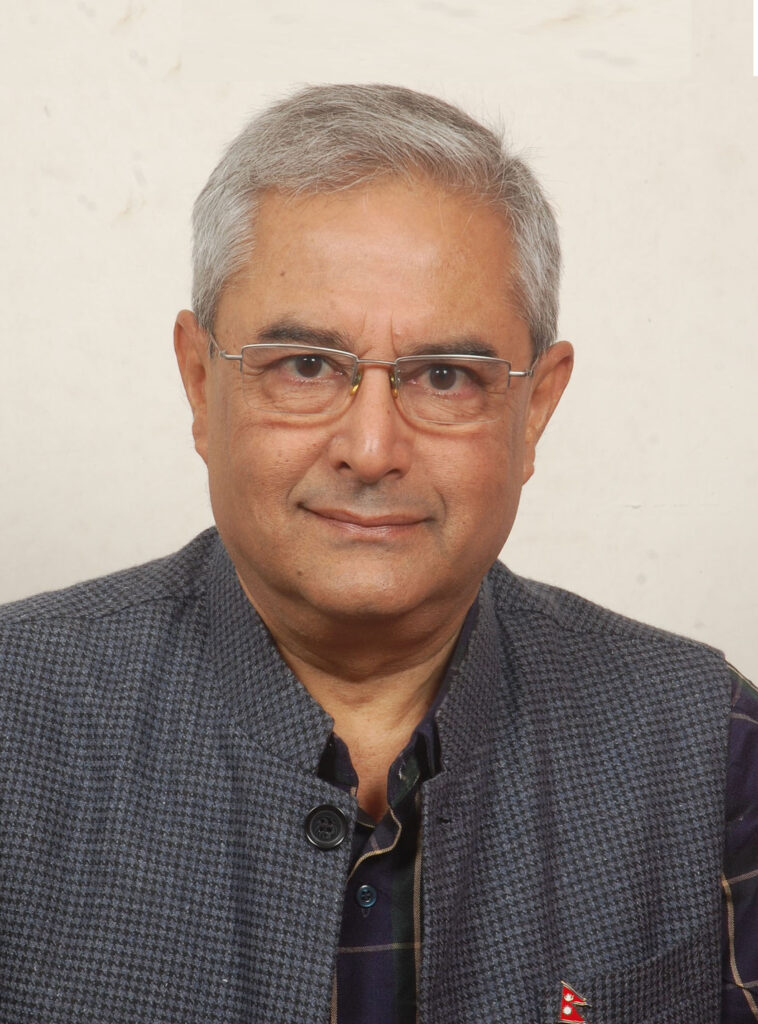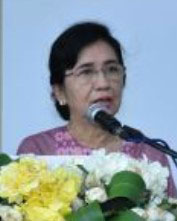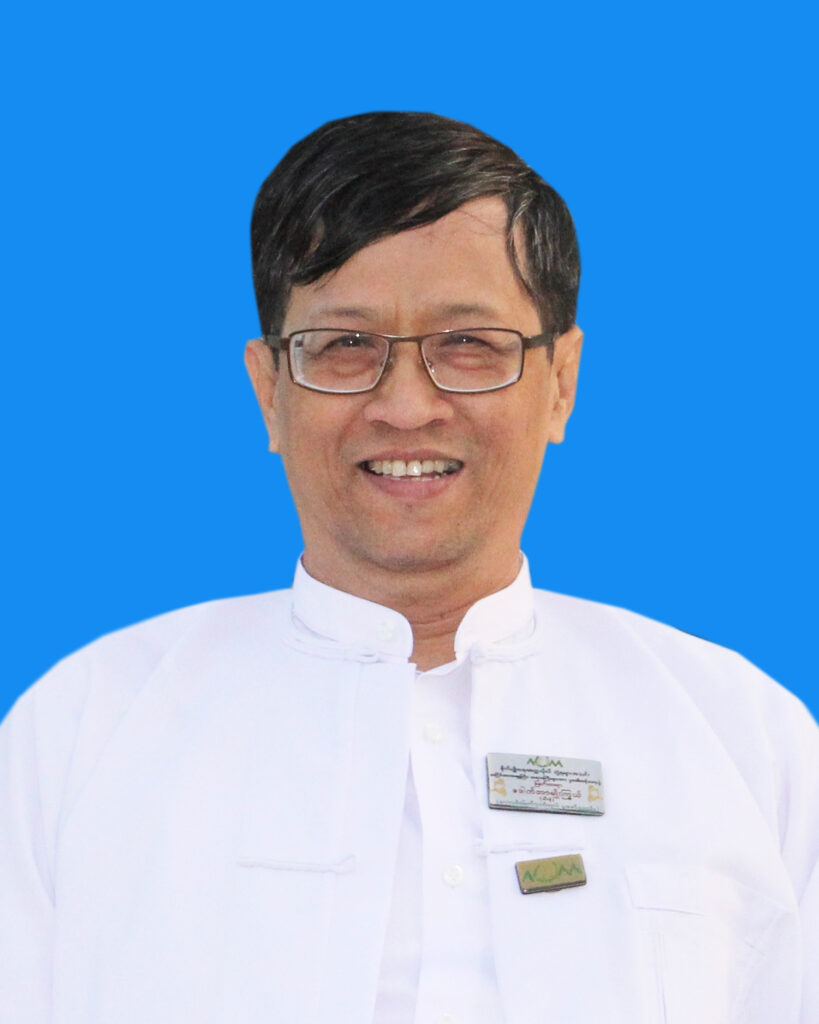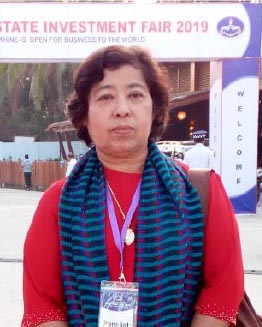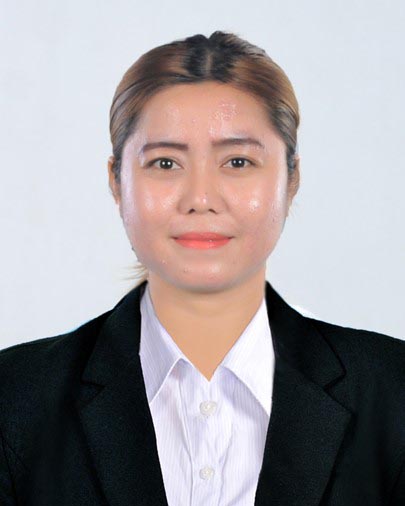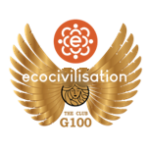
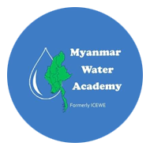
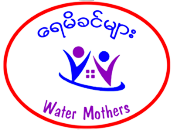

ASEAN Hydroinformatics Data Center (AHC) 3rd Workshop
Invited Lecture via Zoom
Tuesday, 11th Oct, 2022, AHC Secretariat in Singapore
A New Water Management Paradigm: proposed by Ecocivilisation Myanmar Wing
Presented by Prof. Dr. Khin Ni Ni Thein, Founder, Myanmar Water Academy,
Ecocivilisation Wing Myanmar Country Chair, and Advisor to IRAH
Drastically Changing World ( Challenges)
Water
- Water Security is challenged; Water Related Disasters increased by time; Climate Change.
- Water is an integral part, build in life support system, of all existences on this Planet – humans, animals, aquatic animals, plants, forests, ecosystem and the Nature at large.
- Water is life.
Drastically Changing World ( Challenges)
- Total population 8.0 Billion (by 2022)
- There is Global interest in Water – diverse interests as well as vested interests
- Droughts are making headlines from China to England to the USA
- Europe is experiencing its worst drought in at least 500 years (EU JRC)
- 47% of Europe is under warning condition; 17% of the continent is state of alert – vegetation impacted (EU JRC) August 2022 Data
- Asian Development Outlook 2020, UN Water, OECD reports, CSE India reported that horn of Africa faces unprecedented humanitarian catastrophe after 5th failed rainy seasons, flash flood in Pakistan killed 1000+ Aug 2022, rare 3rd consecutive La Nina event underway
- War in Ukraine, other violence and instabilities across the Globe
- Climate Change Impacts – water related disasters, sea level rise, droughts, floods, cyclones, etc.
- 6 Areas (-): Climate Change, Covid, War, Loss of Nature, Financing, and Human behavior
Positive Responses
-
- Humans Adaptation to Big Global Challenges => Consciousness leads to Conscious Cooperation (in some areas and keep growing)
- Collective thinking behind the Sustainable-Development-Goals-Setting and promotion of the goals show the change of collective consciousness in the world. (Positive result of 9 World Water Fora, 3 UN Water Decades, and other countless efforts in the water sector.)
- 9th WWF highlights: The right to access to water in all constitutions. The financing of water. The Governance of Water. WWC President suggested the creation of a Global Water Observatory for Peace, Development and Nature
- Circular Economy Movement
- G100 Mission Million, Ecocivilisation, WEF, AEIOU, Digital Currency, Systems Science, Thriving, Collective Leadership, AI and AI, Gender Equality and Inclusion, Peace and Love is on the Agenda again.
A New Water Management Paradigm suggested the following:-
-
- Financing and Human Leadership styles should be changed radically! Details will be described in the paper, which will be published.
Evolution of Consciousness and Future of Humanity
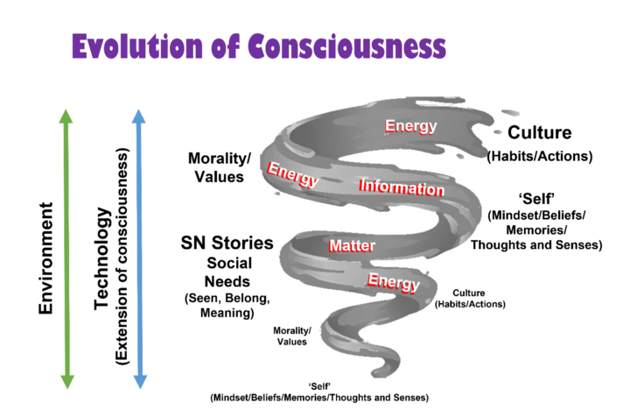
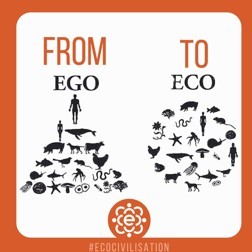
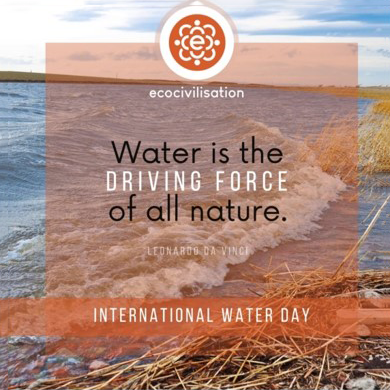
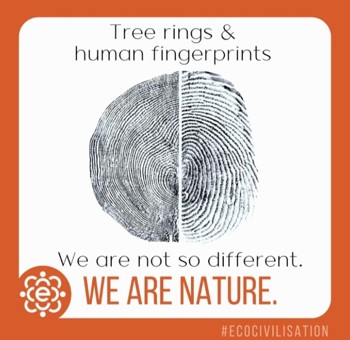
“ALL THE LIFE IS BERATHING TOGETHER”
Water Management Paradigms
A water management paradigm refers to a set of basic assumptions about the nature of the system to be managed, the goals of management and the ways in which these management goals can be achieved.
Past Five Paradigms (Allen Hall, 2005)
- 1st Paradigm – 1850 – Premodern
- 2nd Paradigm – 1885 (approx.) – Industrial Modernity
- 3rd Paradigm – 1900 – Green
- 4th Paradigm – 1995 – Economics
- 5th Paradigm – 2000 – Politics and Industrial (IWRM)
In 2016, a Smart Water Management paradigm integrated with ICT (SWMI model) was suggested by K-Water as a new Paradigm. SWM integrates ICT to monitor water resources, diagnose problems, improve efficiency and coordinate management to help overcome the challenges to provide every citizen with sustainable water supply (Gye Woon Choi, et.al. 2016)
6th Paradigm (2-ply): IWRM aided with Hydroinformatics Tools (DSS) + Systems Thinking Eg. Source to Sea, Future Dams, etc. (from 2012 – 2022)
Proposed New Water Management Paradigm
- A variety of paradigms shape water resources management, reflecting the evolution of policy developments and transient societal values.
- Tug of war between repression and resistance (conservatives and progressive thinkers)
- IWRM has been a predominant management framework from 1990s to date, however, since 2010 UNGA Human Rights-based Approach (HRBA)
- Proposed Paradigm: A New Paradigm (3-Ply)
(Socio-technology + Systems Science + Spiritual transformation – begin with leadership principles)
(Hydroinformatics Tools + Systems Science + AEIOU Leadership)
To revive Human Greatness and Nature together!
- Reason: to dissolve potential paradigm clashes over the tensions and promote synergies between IWRM and the Human Rights-Based Approach
- Problems were found in implementation!
One for All; All for One
Gaining Public Acceptance
- A key to peaceful and effective water management is ‘Gaining Public Acceptance’
- A New Water Management Paradigm is based on three core components (1) Hydroinformatics, (2) Water Circular Economy, and (3) Spiritual transformation.
- We have sufficient technological advancement, water, financial means (collectively) – we need to WALK the TALK => that is Spiritual Transformation
- We are nearly 8 billion people. If each of us try our best, we can restore the Nature, Peace and Rule of Law for our next generations – Be a Good Ancestor!
- Technological means created by following organizations are used as fundamental principles of this proposal.
- Hydroinformatics: https://www.un-ihe.org/msc-programmes/specialization/hydroinformatics-modelling-and-information-systems-water-management-2
- Water Circular Economy: https://openknowledge.worldbank.org/handle/10986/36254
- Ecocivilisation: https://www.ecocivilisation.eu/en/home/
- HELP: High-level Experts and Leaders Panel on Water and Disasters (HELP)
- Water Footprint: https://waterfootprint.org/en/
- WIN Network Link: https://www.waterintegritynetwork.net/
- World Water Council: https://www.worldwatercouncil.org/en
- OECD: https://www.oecd.org/
- UN Water: https://www.unwater.org/
- IRAH Happy Society: https://www.happysociety.org/
- ASEAN Hydroinformatics Data Center (AHC): https://www.aseanwater.net/
- Many more . . . . .
- Need to promote the balanced development (17 Sustainable Development Goals harmoniously), which include Water, Energy and Food Security, Happiness, Peace, and Conscious Cooperation.
- HUMANS are the ACTORS and DRIVERS
- The first three are part of natural sciences and the latter three are part of social sciences.
- Purposeful sustainable development is people-centred and happiness-centred, should be implemented by the people for the people
- Technological-means alone only bring unbalanced development which leads to unsustainable development unwittingly.
- The really important work is the prevention of man-made disasters (in terms of economic, political, wars, health, food, water, energy, transboundary cooperation, etc.) on Earth.
- Co-creation of Ecocivilisation, Circular Economy, Water Integrity Network, Circles, many more . . . . i.e. Human realization => Adaptation
How to convince the other human beings?
Do as we preach / Walk the Talk
- 3.8 billion women on Earth. Women can Walk the Talk
- Because . . . the positive aspects are:-
- Women bring fresh perspectives
- Women lead more effectively
- Women are more empathic
- Women are better communicators
- Women handle crises better
- Women leaders can help bridge the gender pay gap
- Women make amazing mentors
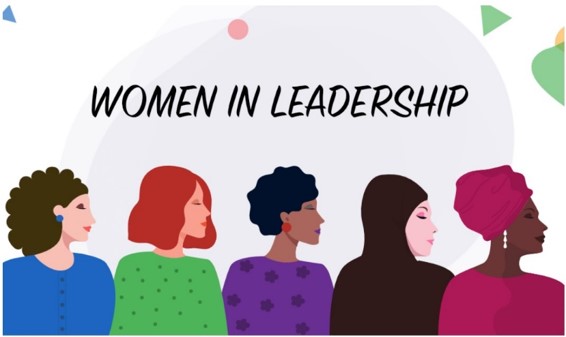
Source: www.proofhub.com, 2022
AEIOU Leadership Principles
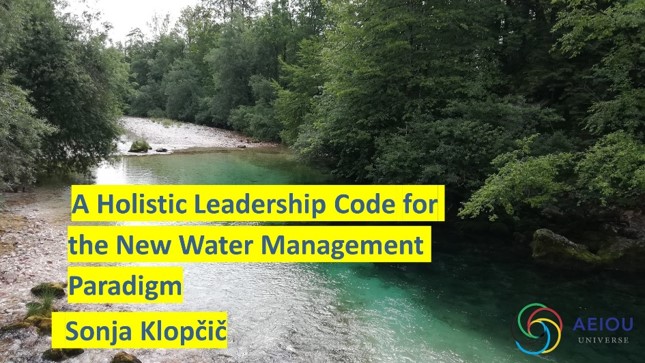
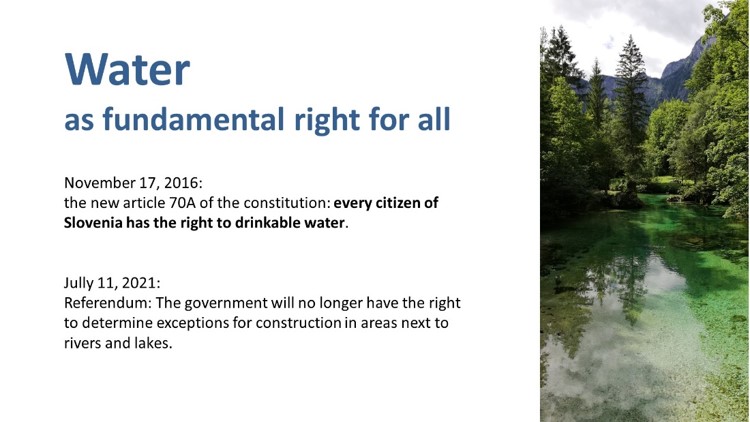
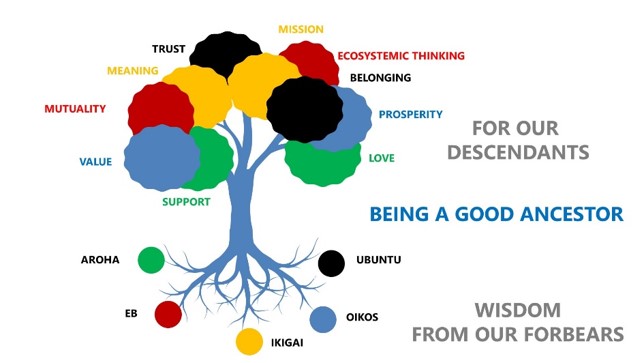
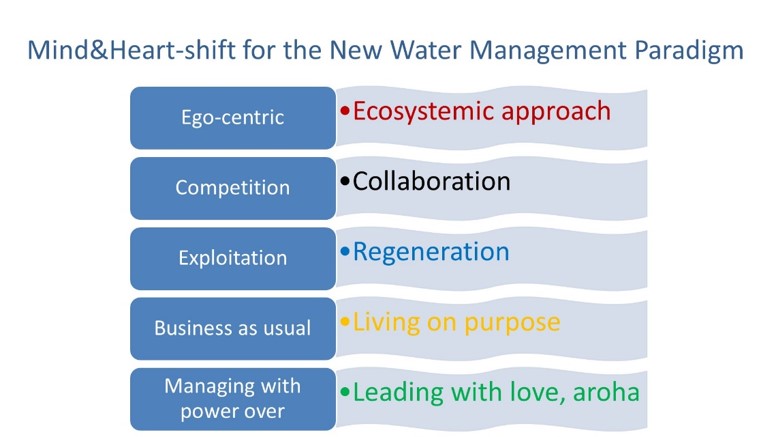
Source: Sonja Klopcic, 2022m Slovenia, 2022
Water Circular Economy (or) CE of Water
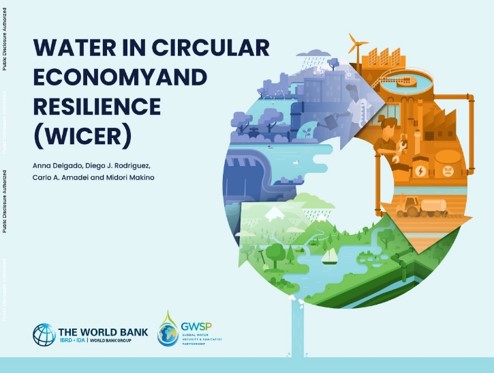
- The initiative “Water in Circular Economy and Resilience” (WICER) aims to promote a paradigm shift in the water sector.
- Current unsustain linear model goes with “take, make, consume, waste” – but Wastewater is not a Waste!
- The shift involves moving away from linear thinking in the way we plan, design, and operate water infrastructure in urban settings towards a circular and resilience approach. (Source: www.worldbank.org/wicer)
Resources Reuse
- Treated wastewater for irrigation
- Nutrients (N and P) from water as fertilizers
- P from sludge as fertilizer
- Biogas for energy production
- Treated sludge in agriculture and forest.
- Source: EU Framework
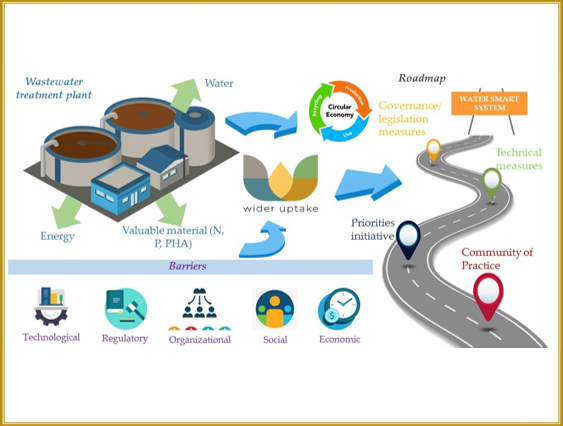
Circular Economy of Water (or) Water CE
- Definition: definition of the CEW as an economic framework for reducing, preserving and optimising the use of water through waste avoidance, efficient utilisation and quality retention while ensuring environmental protection and conservation.
- Rationale: Water is a unique element in the circular economy because it is a resource, a product and a service with no equivalent in the economic system and should be considered and valued as such in the CEW.
- Strategies: A set of nine CEW strategies include Rethink, Avoid, Reduce, Replace, Reuse, Recycle, Cascade, Store and Recover.
- Challenges that need to be addressed to facilitate the transition to a comprehensive CEW are normative (legislation), governance (roles and responsibilities) and implementation (barriers and opportunities for application)
- Source: https://link.springer.com/article/10.1007/s43615-022-00165-x#article-info
Sustainable Development Co-creation
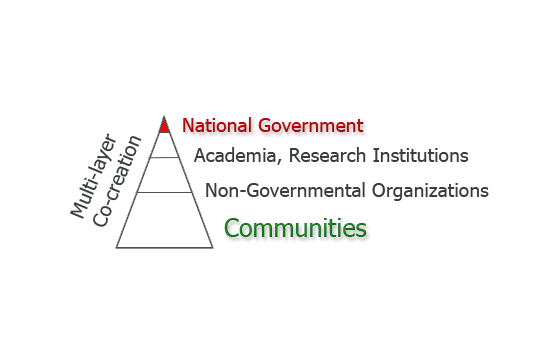

Individual’s Role and responsibility in Sustainable Water Management
Individuals; Peoples; Communities
Water Budget Allocation at the Cabinet Level +
Develop Water Circular Economy practices locally/ communities
Government; Governments,
Sustainability of Water Industries via consciousness + knowledge
Private Sector; Industries
Like-minded organizations
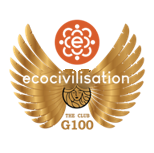
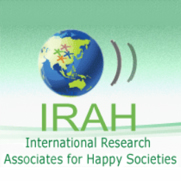

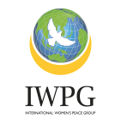

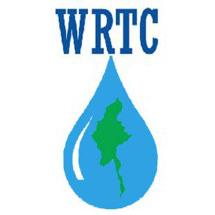
A New Water Paradigm
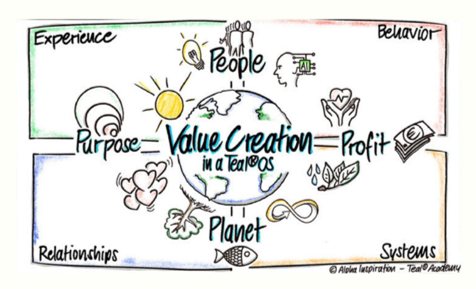
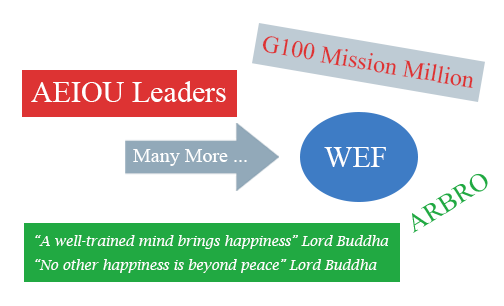
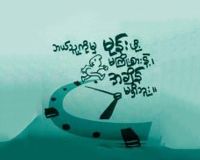


Quotes


Every Project exists in an “outer” physical world and in an “inner” world of the collective minds of stakeholders, and the creation of a communications environment in which the two worlds begin to align is essential to success!
(Prof. Dr. M.B. Abbott, Creator of Hydroinformatics)


One for All; All for One! အားလုံးဆောင်ရွက်၊ အားလုံးတွက်တည့်။
(Myanmar Water Academy/ Think Tank)
Presentations of the proposed ‘New Water Management Paradigm’ around the world in 2022
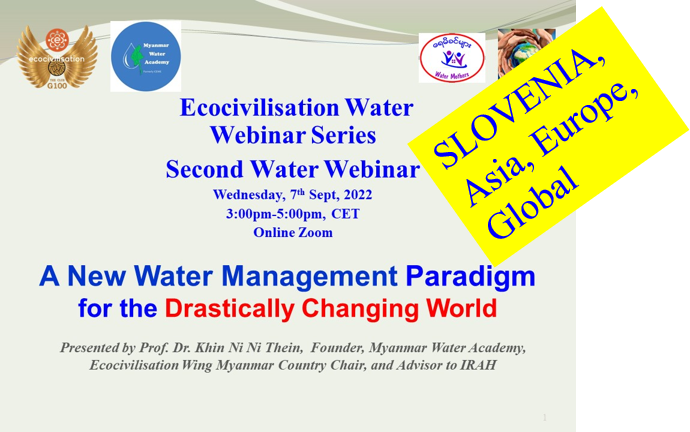
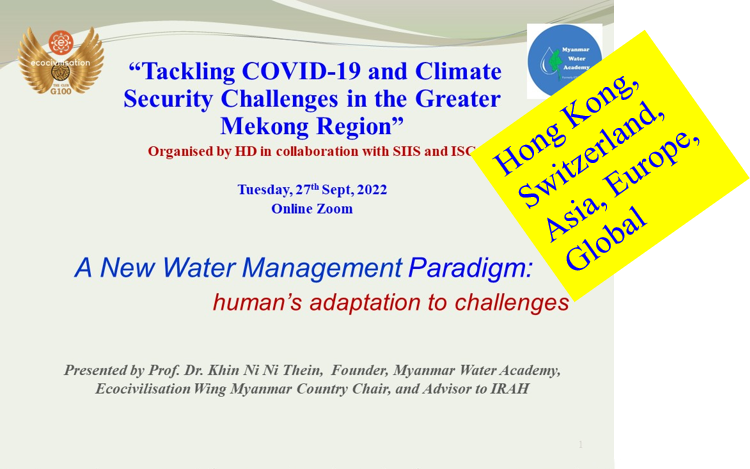
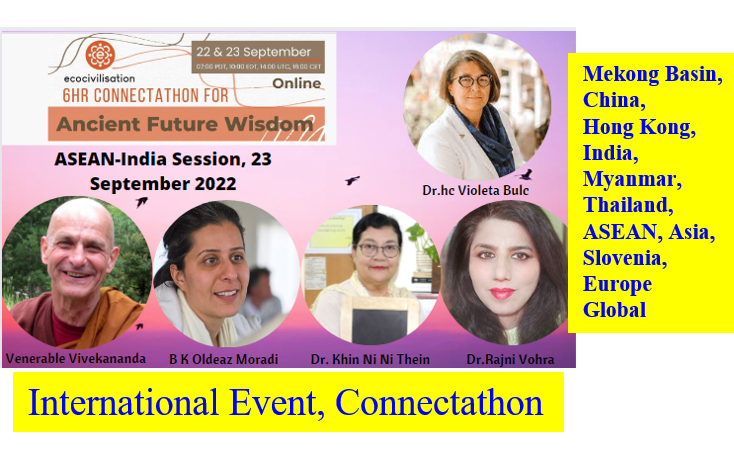
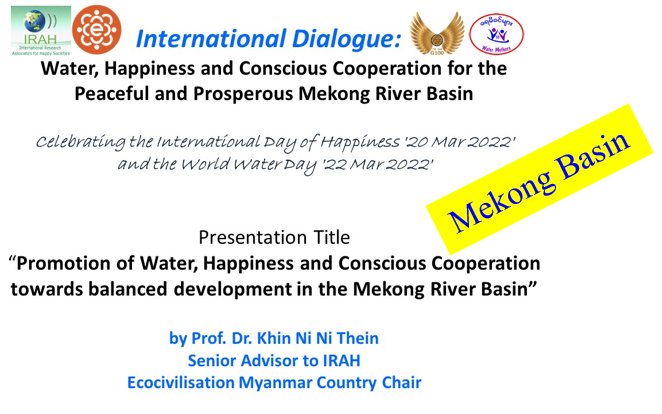
G100 Ecocivilisation Wing (Myanmar)
Contact <[email protected]>
Success of Water Management depends on the following
Every Project exists in an “outer” physical world and in an “inner” world of the collective minds of stakeholders, and the creation of a communications environment in which the two worlds begin to align is essential to success!
(Prof. Dr. M.B. Abbott, Creator of Hydroinformatics)




